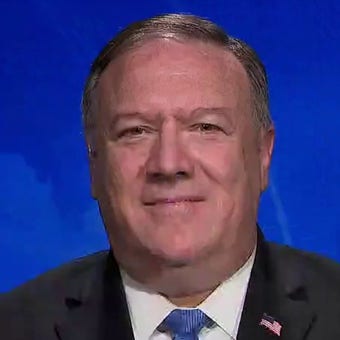The International Criminal Court (ICC) was created in 1998 to complement national justice systems, with nation-states’ consent. However, the court has gone rogue, launching politically motivated investigations into U.S. and Israeli service members.
This month, the State Department took decisive action to stop this miscarriage of justice by sanctioning those responsible for undermining the rule of law and the court’s stated mission.
Many in Washington foresaw the court’s potential for abuse. Republican and Democratic administrations have long agreed that the United States should not accede to the Rome Statute — the treaty creating the court — because it established a tribunal that denies defendants many of the most important rights guaranteed by our Constitution, along with a bureaucracy accountable to no one but itself.
US SANCTIONS INTERNATIONAL CRIMINAL COURT PROSECUTOR OVER PROBE INTO AMERICAN FORCES IN AFGHANISTAN
Citing its “significant flaws,” President Bill Clinton in 2000 refused to submit the treaty for Senate ratification. None of his successors has revisited that decision.
Nevertheless, the International Criminal Court has attempted in recent years to second-guess how the United States dealt with accusations of misconduct by American soldiers and intelligence personnel in Afghanistan — ignoring numerous government investigations into these matters and changes to our laws that Congress passed as a result.
By attempting to assert jurisdiction over Americans, the court in essence is trying to bind the United States to the Rome Statute, thereby contravening the foundational principle of international law that treaties are binding only if a state consents to be bound.
The court’s action is a serious attack on American sovereignty and an outrageous misuse of resources by a so-called “court of last resort” that is supposed to intervene only where national legal systems lack the capacity and willingness to do so.
By straying far from the International Criminal Court’s original mandate, the prosecutor’s recent conduct also has vindicated a quarter-century of American concerns that the ICC would morph into a tool of global politics.
In addition to targeting Americans, the ICC’s chief prosecutor, Fatou Bensouda, is trying to insert herself into one of the world’s longest-running and most vexing political quandaries by investigating the legality of Israeli settlements in the West Bank.
A Palestinian-backed lawyer recently urged Bensouda to go a step further and bring charges not only against Israeli officials, but also against Americans — including President Trump, his son-in-law and senior adviser Jared Kushner, and me — as “accomplices” in an alleged conspiracy to commit war crimes.
Such entreaties aren’t the dispassionate pursuit of justice by impartial civil servants; they signal that the court is a tool of politics by other means.
The Trump administration at first tried diplomacy to resolve our concerns about the ICC. Since the ICC first took steps to target Americans in 2017, our team at the State Department has frequently highlighted the problems with the court’s course of action in the hope that the prosecutor’s office would stop its unjust inquest.
I personally have spoken with our allies on this issue on multiple occasions. The United States imposed sanctions this month on Bensouda and one of her chief aides, only after exhausting all other options.
Unlike other nations, the United States is often called upon to project military force beyond our borders to protect our people, and, at times, to prevent the very kinds of atrocities the ICC was founded to deter.
We therefore are uniquely vulnerable, should our adversaries seek to weaponize the ICC against us. In fact, we have well-founded concerns that Russia and perhaps other nations have done so in recent years.
CLICK HERE TO SIGN UP FOR OUR OPINION NEWSLETTER
The Trump administration isn’t alone in our campaign to push back against the ICC. More than 300 members of Congress recently wrote me to express outrage over the ICC’s investigations of Israel and encourage the administration to take strong action.
For those who worry that our actions are too heavy-handed, let me reassure you that our goal is simple. We seek to protect Americans — permanently — from being brought before a body whose jurisdiction we do not recognize. Were this to happen, the United States will gladly stand down and allow the ICC to refocus its efforts on its core mission.
Multilateral organizations must be held to high standards. The Trump administration has consistently emphasized our support for institutions if they serve both American interests and the interest of nation-states that created them.
CLICK HERE TO GET THE FOX NEWS APP
The International Criminal Court, in its present form, is inherently susceptible to political bias, manipulation and corruption. It neither serves American interests, nor the interests of its member states that genuinely want justice for war criminals.
We stand ready to work with our allies who are members of the ICC to resolve our concerns about the organization in an amicable way. But if that effort fails, we will use all tools at our disposal to protect our citizens and defend our sovereignty.









































